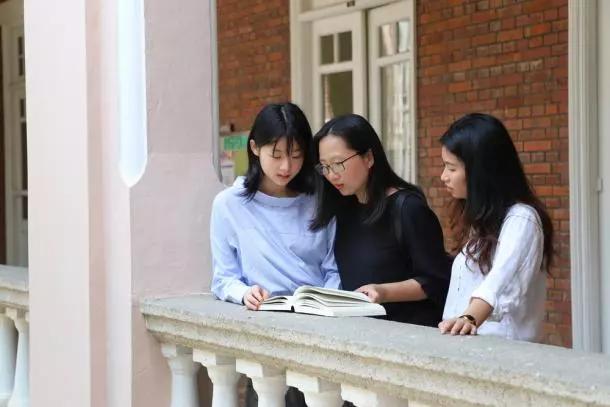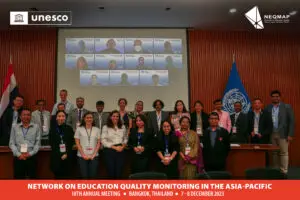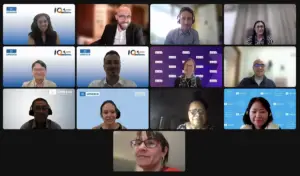Date: 8 December 2023 – 5:00 pm
Location: Bangkok, Thailand and via Zoom (Hybrid modality)
The Network for Education Quality Monitoring in Asia-Pacific (NEQMAP) is convening a policy dialogue session entitled ‘Using assessment to inform teaching and learning in schools: Policies and practices from Asia-Pacific’, during its Annual Meeting, in Bangkok, from 7 to 8 December 2023. Two new UNESCO publications on the theme of assessment for learning will be launched, followed by panel discussions highlighting promising practices from across Asia and the Pacific.
This session is organised by the UNESCO Regional Office in Bangkok (UNESCO Bangkok) in collaboration with the Global Education Monitoring Centre, a long-term partnership between ACER and the Australian Government’s Department of Foreign Affairs and Trade and is supported by the Ministry of Education, Culture, Sports, Science and Technology of Japan (MEXT) and the Institute of Informatics and Development (IDD).
This session will highlight promising and effective policies, practices, and lessons learned on how policy-makers and education leaders can best support teachers and schools in effectively integrating assessment practices in the teaching and learning process. In particular, panelists will look at how policy-makers and education leaders help promote and reinforce the diagnostic and formative use of assessment to inform teaching and learning practices within a learner-centred and differentiated approach to learning.
The session will build upon the findings of two newly launched reports:
I. Addressing learning needs in the Asia-Pacific region: Teachers’ guide on diagnostic assessment
UNESCO will publish this teachers’ guide on diagnostic assessment on 8 December 2023 in close collaboration with the Directorate of Secondary and Higher Education under the Ministry of Education of the People’s Republic of Bangladesh, and the Ministry of Education and Skills Development of the Kingdom of Bhutan. The teachers’ guide was generated as part of a UNESCO project on ‘Building capacity for learner-centered teaching and learning’, funded by the Ministry of Education of Japan (MEXT). The project was implemented in Bangladesh and Bhutan to build national capacity in diagnostic assessment, with the aim to support learning recovery and address the learning crisis in the Asia-Pacific region more broadly. As such, the teachers’ guide aims to equip teachers and educators in formal education (primary and secondary) in the Asia-Pacific region with the knowledge, tools and examples to help them design and carry out a diagnostic assessment. It aims to improve teachers’ capacities to: (1) Identify students’ learning gaps and needs; and (2) Plan how to address these needs.
Presenters from the Ministry of Education of the People’s Republic of Bangladesh and the Ministry of Education and Skills Development of the Kingdom of Bhutan will be invited to share their experiences in contributing to the development of the guide and reflect on their national policies on assessment for learning. Policy-makers from other countries in Asia-Pacific are also invited to reflect on their own national practices to promote assessment for learning and relevance of diagnostic assessment in their national contexts.
II. Topical case studies on ‘Supporting schools’ and teachers’ use of assessment to inform learning of all students’
Several NEQMAP members under the coordination of UNESCO Bangkok and the Global Education Monitoring (GEM) Centre, have authored topical case studies documenting promising policies and practices on the effective use of assessment for teaching and learning. These topical case studies highlight policies and practices from Australia, India (namely New Delhi and Andra Pradesh), and Pakistan to showcase how national authorities, expert agencies, school-level practitioners and civil society organizations can better support teachers and schools in effectively integrating assessment practices in the teaching and learning process to identify and meaningfully address every learners’ needs. In particular, the case studies show how different tools, approaches and policies help promote and reinforce the use of assessment to support more learner-centered and differentiated approaches to teaching and learning. These topical case studies form part of an ongoing series of NEQMAP Case Studies which explore policies, strategies or approaches for effective assessment practices that promote learning. Examples of previous NEQMAP Case Studies include Citizen-led Assessments: A Model for Evidence-based Advocacy and Action to Improve Learning; and The Southeast Asia Primary Learning Metrics Program.
Authors of the topical case studies will be invited to share their experience and reflect on their practices highlighted in the case studies.
Session Objectives
- Launch and discuss findings from the UNESCO Teachers’ guide on Diagnostic Assessment and the NEQMAP Topical Case Studies on Assessment for Learning
- Share and discuss promising practices on assessment for learning in the Asia-Pacific Region
Day / Time
The session will take place on 8 December 2023 – the second day of the NEQMAP Annual Meeting starting 7 December – from 10.30–12.30, Bangkok time (GMT+7).
How to join?
This session is open to all. NEQMAP Members can attend either in person at the UNESCO Regional Office in Bangkok or online via Zoom. Other participants can listen in through the livestream that will be restransmitted on the UNESCO Bangkok Facebook page.
#QualityOfEducation #NEQMAP
Agenda
10.30–10.35
Opening remarks by the Session Chair
- Margarete Sachs-Israel, UNESCO Bangkok
10.35–11.00
Launch of the Teachers’ Guide on Diagnostic Assessment and the NEQMAP Topical Case Studies
- Soumaya Maghnouj, UNESCO Bangkok, Presentation of the UNESCO Teachers’ guide to diagnostic assessment (10 min)
- Ursula Schwantner, GEM Center, Presentation of the NEQMAP Topical Case studies report (10 min)
11.00–12.00
Panel discussion 1: National policies to support assessment for learning (60 min)
Panel discussion (40 min)
- Panelist: Sangay Tshering, Curriculum Developer, School Curriculum division, Department of School Education, Ministry of Education and Skills Development, Bhutan
- Panelist: Kitignavong Khampaseuth, Director General, Department of General Education, Ministry of Education and Sports, Lao PDR
- Panelist: Md. Mahmudul Amin, Associate Professor of English, Specialist, National Curriculum and Textbook Board (NCTB), Bangladesh
- Panelist: Sar Sarin, Deputy Director, Education Quality Assurance Department, Ministry of Education, Youth and Sport, Cambodia
Questions to the panelists (10 min)
12.00–12.30
Panel discussion 2: Supporting school level practices (30 min)
Panel discussion (20 min)
- Panelist: Munira Muhammad Rangwala, Lead Specialist, Aga Khan University Examination Board
- Panelist: Pendem Rambabu, State Head Andhra Pradesh and Telangana, Pratham Education Foundation
- Panelist: Marc Kralj, Education Consultant- School and Early Childhood Education Services, ACER
- Panelist: Priyanka Sharma, Director of Research, ACER India
Questions to panelists (10 min)





